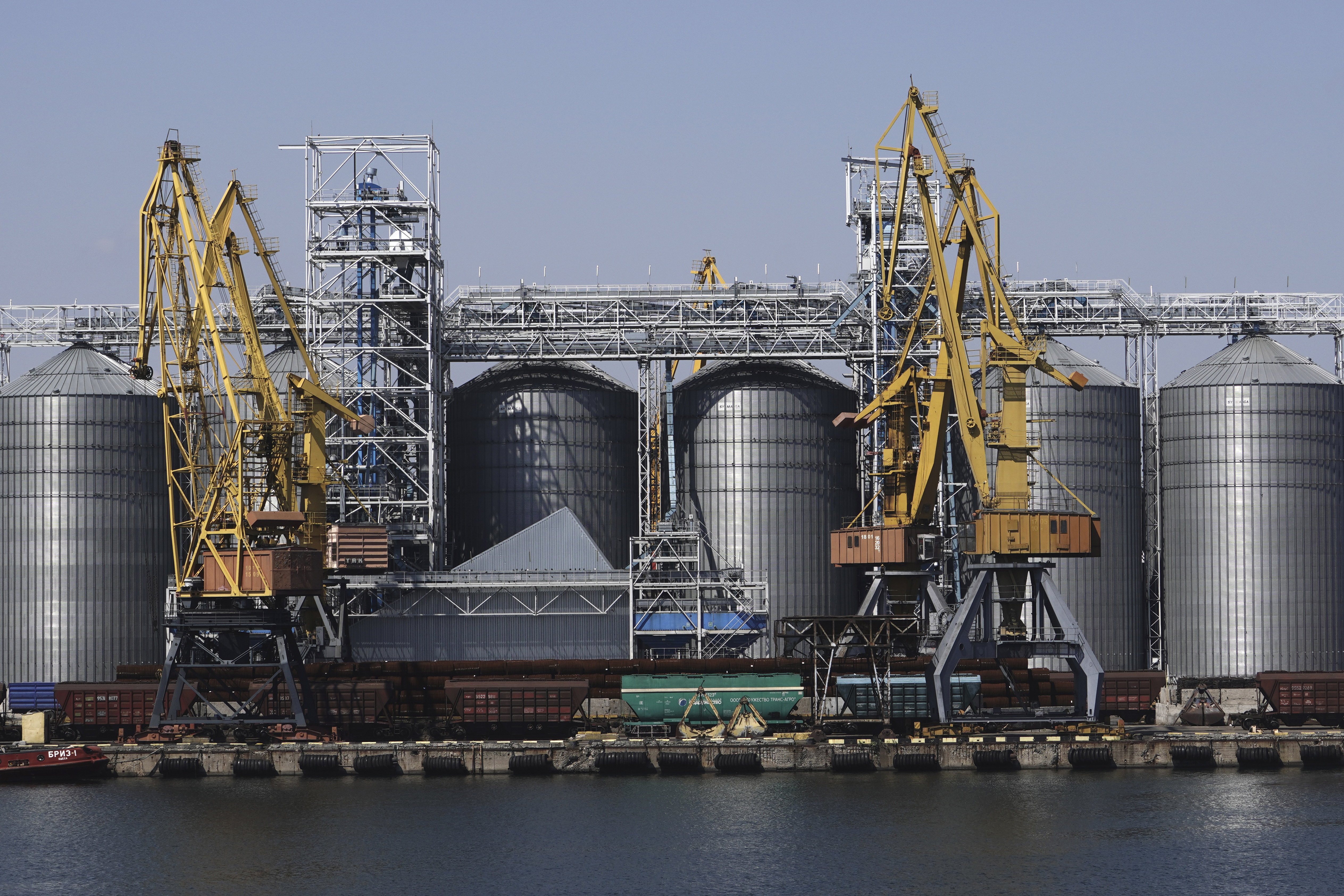
BREAKING: Aggression Escalates as Russia Targets Grain Ports in Ukraine, Propelling Global Grain Prices Soar
In a dramatic escalation of the ongoing conflict between Russia and Ukraine, tensions have reached a boiling point as Russia struck key grain ports in Ukraine. The recent attacks have led to a surge in global grain prices, igniting fears of a potential food crisis on an international scale. The devastating impact of these strikes has sent shockwaves through the agricultural sector, triggering concerns about food security and supply chain disruptions worldwide.

The Situation Unfolds:
As the sun set over the Black Sea, the world watched in horror as the Russian Navy unleashed a barrage of missiles upon critical grain ports in Ukraine. The attack targeted vital transportation hubs, including the ports of Odessa and Mykolaiv, both major gateways for Ukrainian grain exports. Reports indicate that these ports have suffered significant damage, severely hampering their operations.
Ukraine, often referred to as the “breadbasket of Europe,” plays a crucial role in global grain markets. It is one of the top wheat exporters globally, supplying key markets in Europe, the Middle East, and Asia. The disruptions caused by these attacks have set off a chain reaction that is being felt far beyond the region’s borders.
Ripple Effect on Global Grain Prices:
With Ukrainian grain exports severely impacted, the global grain market has reacted sharply. Grain prices have skyrocketed in response to the growing uncertainty and supply constraints. Wheat futures on major exchanges have hit record highs, and corn and barley prices have also experienced substantial increases. This situation is putting immense pressure on countries that heavily rely on grain imports to feed their populations.

Food Security Concerns:
The surge in grain prices has raised serious concerns about global food security. Many nations, particularly those in regions already grappling with economic challenges and food shortages, are feeling the strain. The United Nations Food and Agriculture Organization (FAO) has sounded the alarm, warning that millions of vulnerable people could face increased food insecurity due to the rise in grain prices.
Experts are apprehensive that this crisis could lead to political instability in certain regions, exacerbating existing tensions and triggering humanitarian emergencies. For countries heavily reliant on grain imports, such as Egypt, Saudi Arabia, and several African nations, the situation is particularly precarious as they seek to secure adequate food supplies without exhausting their foreign reserves.
Supply Chain Disruptions:
The attacks on Ukrainian grain ports have far-reaching implications for the global supply chain. Ukraine’s logistical disruption has put immense pressure on alternative grain exporters, such as Russia and the United States, to fill the gap in supply. However, the escalation of hostilities and the imposition of economic sanctions have also raised doubts about the reliability of Russian grain exports.
The United States, as one of the world’s leading grain producers, is stepping up its efforts to meet the rising demand for wheat and other grains. However, transportation and logistical challenges are arising due to increased pressure on ports, railways, and shipping companies. As a result, even the attempts to mitigate the crisis are facing significant obstacles.

Striving for Peace Amid Chaos:
As the situation unfolds, the international community is urgently calling for a peaceful resolution to the conflict between Russia and Ukraine. Diplomatic efforts are underway to broker a ceasefire and find a path to de-escalation. The European Union, the United States, and other key players are using diplomatic channels to exert pressure on Russia to cease its aggressive actions.
Global organizations and governments are also mobilizing to provide humanitarian aid and support to those affected by the escalating conflict. Emergency food aid, financial assistance, and technical support are being extended to nations facing acute food shortages and economic strain due to the grain price surge.
Amid the chaos, stakeholders in the agricultural industry are also exploring innovative ways to safeguard the global food supply chain against future disruptions. Digital technologies, sustainable farming practices, and strategic grain reserves are being explored to enhance resilience and mitigate the impact of such crises.
A Call for International Solidarity:
As the world faces one of the gravest challenges in recent times, the situation calls for international solidarity and cooperation. Governments, organizations, and individuals must come together to address the pressing issues of food security and peace. Collaborative efforts to end conflicts, promote sustainable agriculture, and ensure equitable access to food are vital to overcoming this crisis.
In conclusion, the attacks on grain ports in Ukraine by Russia have set off a chain reaction with severe consequences. Global grain prices have surged, threatening food security and amplifying supply chain disruptions. The world is now facing a critical moment, requiring urgent diplomatic solutions and collaborative efforts to alleviate the crisis. Only through international solidarity and collective action can we hope to navigate these turbulent times and secure a stable and prosperous future for all.




